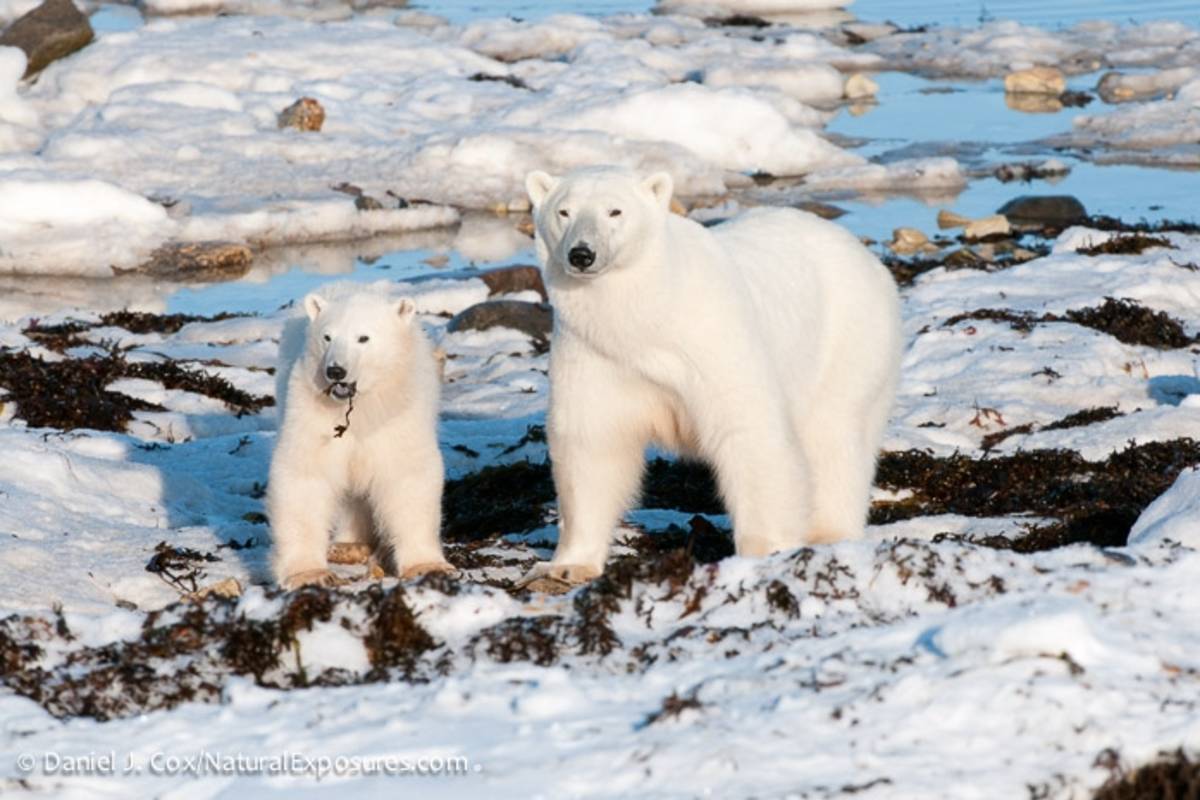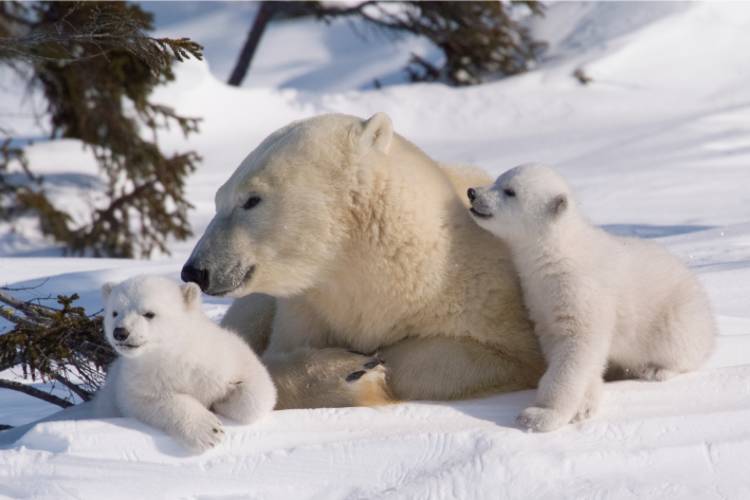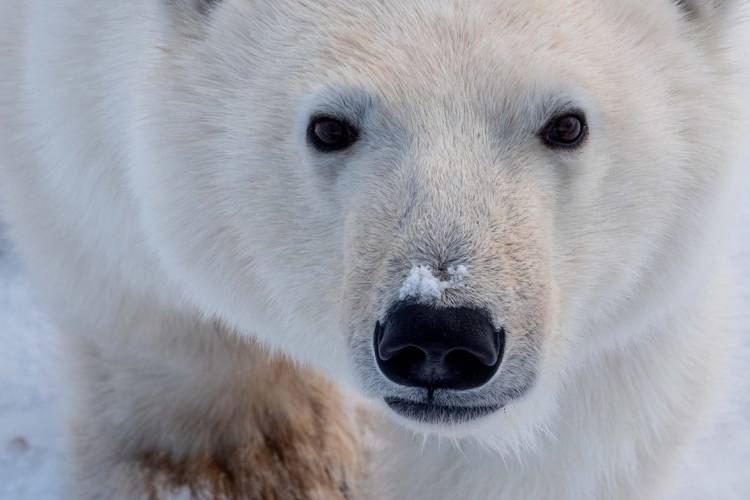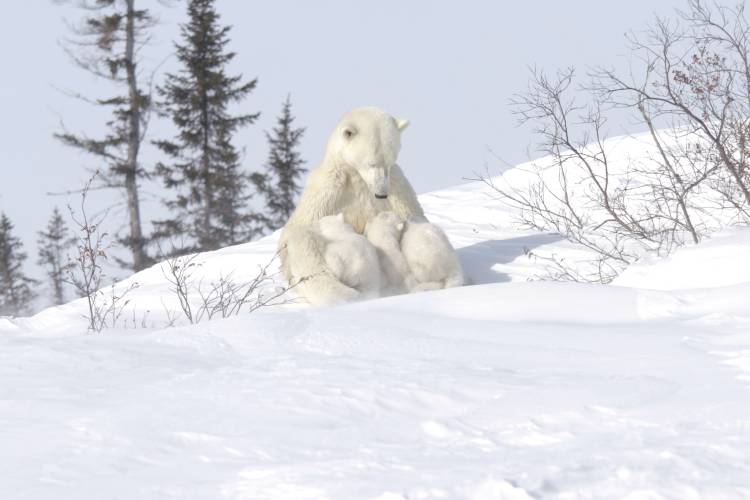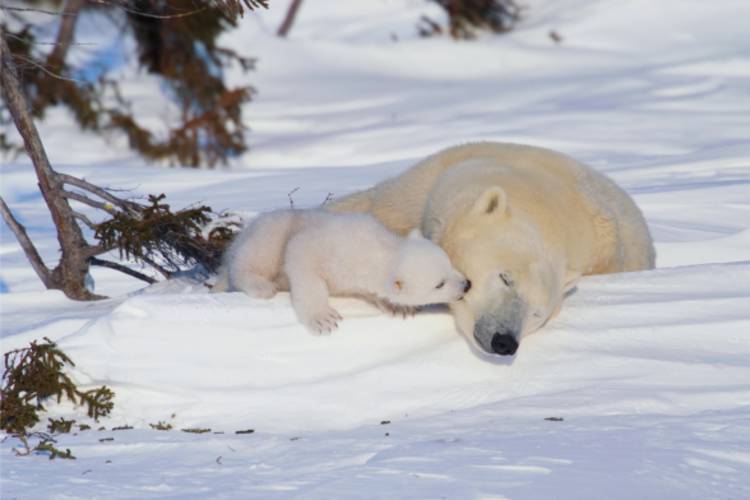Scientists have known for years that polar bears forced ashore in summer by melting sea ice may feed on foods like bird eggs, berries, and small mammals. But would polar bears be able to survive in a warming Arctic by eating land-based foods?
The short answer: no.
A new study by the USGS, Washington State University, and Polar Bears International examines this question. In a paper released today in Frontiers in Ecology and the Environment, the authors show that switching to terrestrial foods isn't a viable solution for polar bears.
"We know that polar bears have been raiding bird nests and even catching some adult geese, but the critical question is: how important is this?" said Polar Bears International's chief scientist, Dr. Steven Amstrup, a coauthor of the paper. "There's a difference between seeing an animal eat something and understanding what the value of that food is."
Inadequate Diet
The research team compared the nutritional needs of polar bears, which have evolved to prey on fat-rich seals, with the nutrients available in land-based foods. They found that while some individual bears may temporarily benefit from eating energy-rich foods like bird eggs, these aren't abundant enough to have an impact at the population level. And other possible foods, like small mammals and vegetation, don't meet the polar bear's nutritional requirements.
"Although some polar bears may eat terrestrial foods, there is no evidence the behavior is widespread," said Dr. Karyn Rode, lead author of the study and a scientist with the USGS. "In the regions where terrestrial feeding by polar bears has been documented, polar bear body condition and survival rates have declined."
Amstrup adds that the tundra niche is food-poor from a bear's perspective.
"The brown bears already there are small and occur in low densities," he said. "Why would anyone think this nutritionally poor environment suddenly could support whole populations of the world's largest bears?"
"While it's tempting to think that polar bears could survive by switching to a terrestrial diet, this paper establishes in no uncertain terms that land-based foods do not offer any hope of polar bear salvation. And, if we don't save the sea ice, polar bears will indeed be gone."
